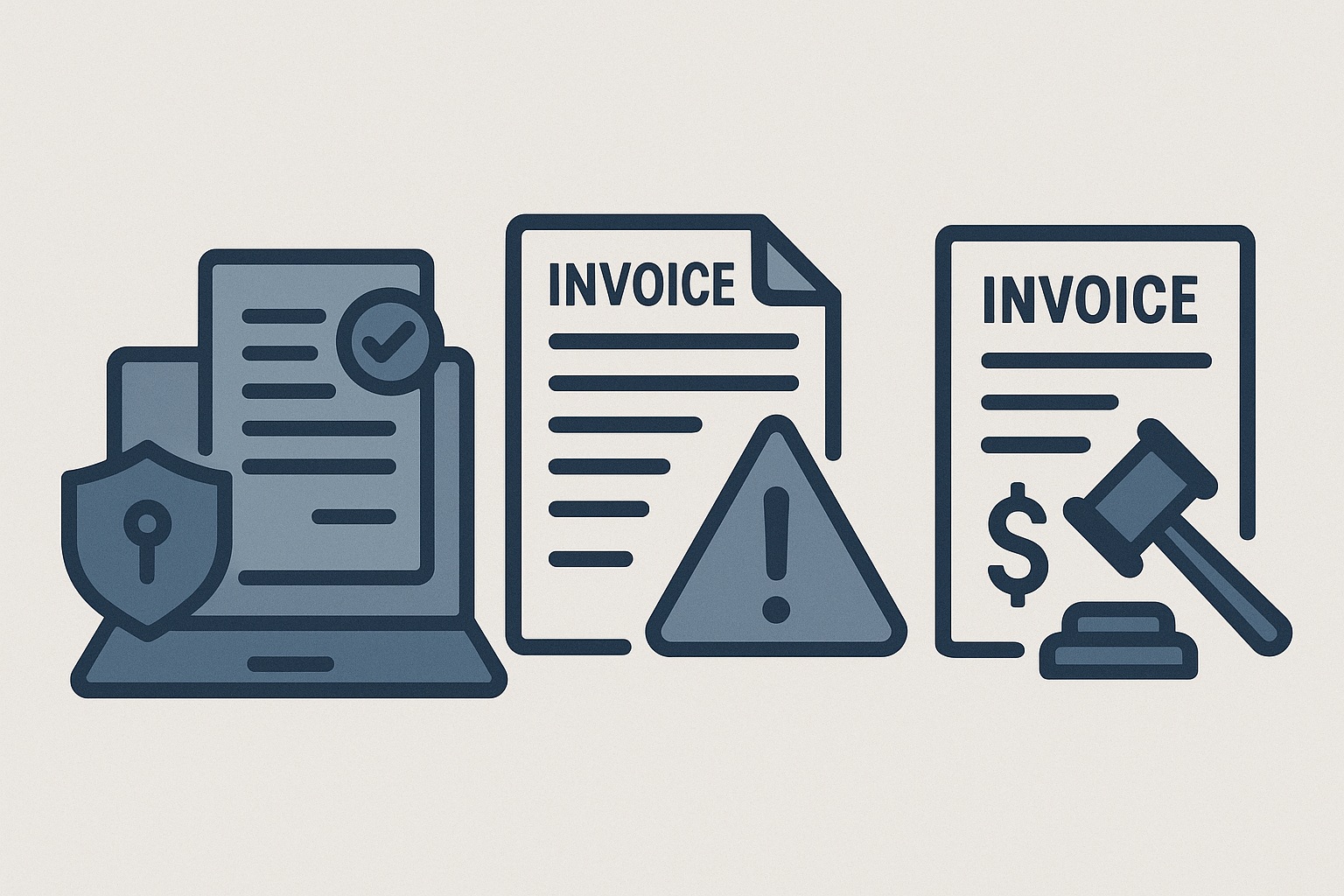In 2025, electronic invoices (E-invoices, EI or ESF) in Kyrgyzstan became an integral part of tax and accounting records. Their introduction is driven by the digitalization of document flow, stricter VAT control, and the government’s efforts to reduce the shadow economy. However, not all entrepreneurs and accountants fully understand how the system works, what obligations it imposes, and what consequences may result from mistakes or delays. This article provides a step-by-step breakdown of registration, common issues, and penalties for violations.
What is an electronic invoices (ESF)?
An ESF is a document confirming the sale of goods, works, or services, created and registered through the State Tax Service’s (STS) special electronic platform. It replaces the paper version and is mandatory for companies under the general taxation system (GTS) and VAT payers.
Who is required to use electronic invoices?
Since 2022, issuing electronic invoices has been mandatory for:
- organizations and individual entrepreneurs that are VAT payers;
- companies working with government procurement;
- businesses engaged in cross-border trade (especially within the EAEU);
- certain industries defined by government decree (e.g., fuel, alcohol, imports).
Step-by-step electronic invoice registration
- Obtaining an EDS (electronic digital signature)
Required for logging into the taxpayer’s personal account and signing documents. It can be obtained at a Public Service Center (ЦОН) or accredited certification centers. - Access to the STS personal account
After registering the EDS, the user gains access to esf.salyk.kg — the official electronic invoice portal. - Setting up the company profile
You must provide:- legal and actual address,
- information about the director and chief accountant,
- bank details,
- tax codes.
- Adding a product/service catalog
Templates are created to speed up invoice filling and minimize errors. - Creating and signing an electronic invoice
The document is generated in the system, signed with the EDS, and sent to the buyer. The buyer must confirm or reject the ESF.
Typical errors when working with electronic invoice in Kyrgyzstan
- Late invoice registration
ESFs must be registered within 5 calendar days of shipment. Missing this deadline is one of the most common reasons for fines. - Incorrect TIN or OKPO of the counterparty
Errors in identification data lead to rejection of the document or VAT credit issues. - Mismatched VAT amounts or rates
Automated checks verify calculations. Mistakes (e.g., 12% instead of 0% for exports) result in additional charges. - Lack of buyer confirmation
The buyer must confirm receipt of the ESF. If not, risks arise during audits. - Duplicate invoices
Re-registering the same invoice due to operator error or system glitch causes accounting confusion.
Penalties and sanctions
According to the Tax Code and government decrees:
- For late ESF registration:
- up to 10,000 KGS for individual entrepreneurs,
- up to 20,000 KGS for legal entities.
- For missing an ESF for a required transaction: 20,000–50,000 KGS depending on turnover and violation type.
- For data falsification (e.g., sums, TIN): fines up to 40,000 KGS, and in some cases access to the system may be blocked until violations are corrected.
- For systematic violations:
- restriction from participating in government procurement,
- denial of VAT refunds,
- tax audits with additional charges.
How to avoid errors and fines?
- Use accounting software integrated with the STS: this reduces manual entries.
- Verify counterparties’ data on the STS website or via “Salyk Info.”
- Set up notifications for ESF confirmations and submission deadlines.
- Train employees — they must know not only how to issue an ESF but also how to cancel, annul, or correct it.
- Conduct regular audits of electronic invoices.
Outlook and trends
From 2025, the ESF system is expected to expand its functionality, including:
- auto-filling data from contracts,
- QR codes on each ESF,
- automatic alerts about discrepancies between tax declarations and invoices.
In addition, the government is considering mandatory ESF usage for all individual entrepreneurs on the GTS, regardless of VAT status.
Conclusion
The electronic invoice system in Kyrgyzstan is a key tool for fiscal transparency and digital transformation. Despite initial difficulties, its use is becoming a standard for responsible businesses. Proper registration, careful data entry, and meeting deadlines are essential to avoid penalties and maintain a good business reputation.
If you still have questions about working with ESF or need accounting assistance, it is advisable to consult specialists familiar with the platform and the latest legislative updates.
